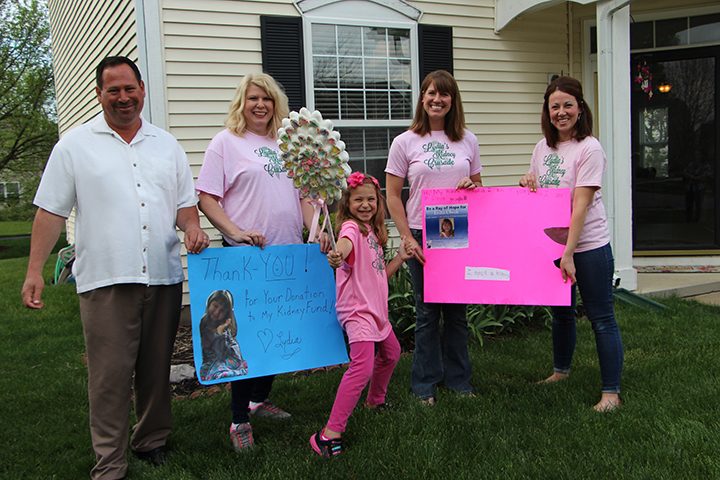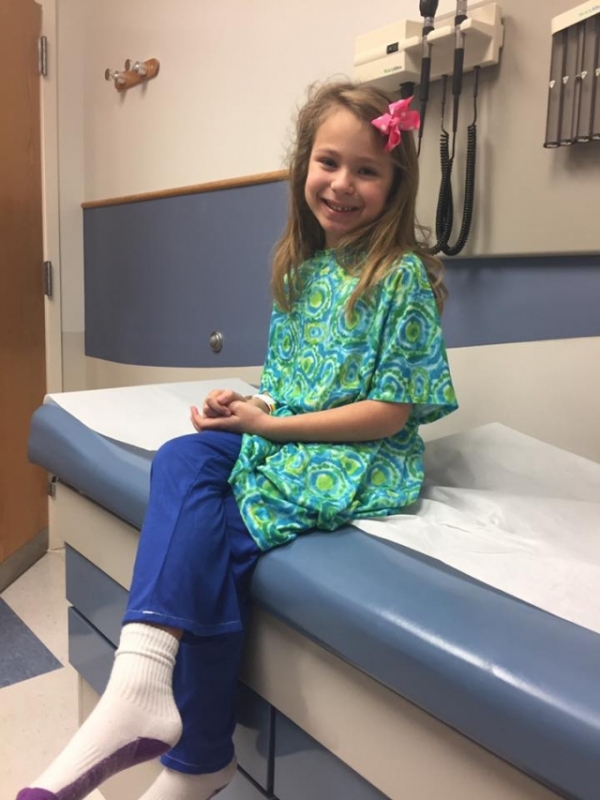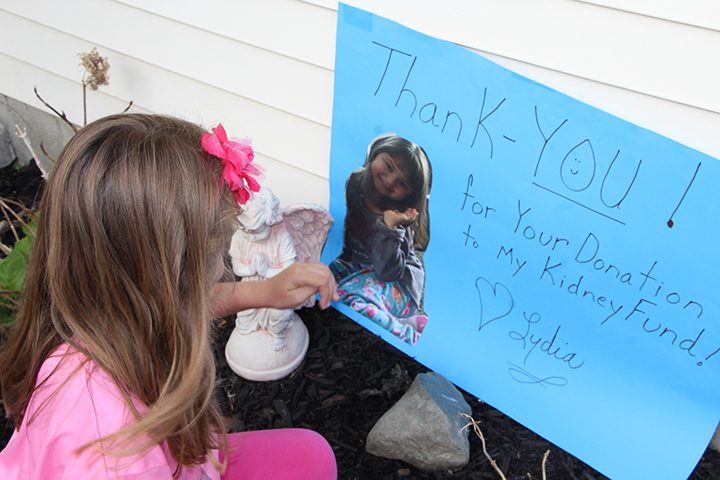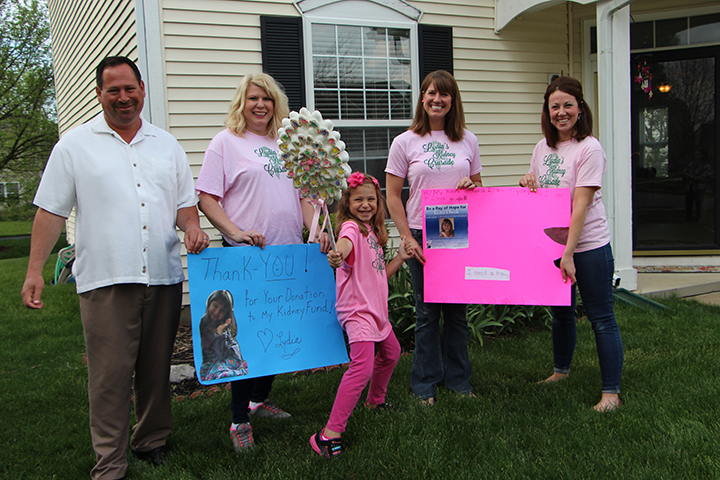
By Anna Skinner
Lydia Check is a normal 7-year-old girl. She attends Fall Creek Elementary and likes to sing and dance. She carries a jump rope wherever she goes. Her favorite classes are art and gym.
The only difference between Lydia and other 7-year-olds is she has a rare genetic disorder called nephronophthisis, which turns her kidneys into scar tissue. One kidney requires a transplant, and the Check family is raising money through the Children’s Organ Transplant Association to defray costs.

“She has a genetic disorder that she inherited from us that we are carriers for, but we both didn’t have (the disease),” Lydia’s mom Paula said. “Both kidneys are turning to scar tissue, so we need a new one (for her).”
Paula said with medical expenses, medication, surgery and doctor visits, costs are exhorbitant. The Check family is raising money through fundraisers and seeking a kidney donor, which has not yet been found.
Lydia began to experience symptoms in August 2014 with an autoimmune disorder. In January 2015 she began treatment for ulcerative colitis. The UC then went into remission, but Lydia’s blood panels were still being monitored. Then, in August 2015, doctors realized something wasn’t right with her kidneys. Genetic testing discovered her disorder.
Lydia’s father David said genetic disorders account for only 1 to 2 percent of all kidney diseases. The fact that he and Paula were carriers for nephronophthisis is extremely rare.
Although Lydia was diagnosed almost two years ago, she wasn’t eligible for a kidney donation until just a few months ago.
Because Lydia has a genetic disorder, the same disease shouldn’t affect the new kidney.
“We are actually happy it’s genetic because the same thing shouldn’t be happening in the new kidney,” David said.
The surgery itself will cost $300,000, and then there is the hospital stay, anti-rejection medication and follow-up visits.
Paula began a funding program with COTA to help the family with expenses.
“COTA is a lifetime organization that works with us for her,” she said. “No matter how much we raise, it works for us through the rest of our lives for medical expenses.”
Goldfish Swim School hosted a fundraiser during spring break. The school donated money from every open swim. Money has also been raised through Fall Creek’s spring fling and a spring fling at Primrose School in Carmel.
Paula reached out to family friend Carrie Devine-Ransom to handle all public relations regarding the family and fundraising events. Devine-Ransom will host an outdoor fitness class event June 10 with all proceeds going to COTA to then be allocated to the Check family.
Despite the serious of Lydia’s disorder, her parents say it’s hard for someone to tell she is sick.
“She would get tired and dehydrated really easy because her kidneys are working overtime,” Paula said.
Although Lydia drinks plenty of water throughout the day, she requires a GI tube for hydration and medication while she sleeps.
Medication keeps her healthy, and David said other than doctor’s appointments, Lydia doesn’t miss much school.
“I’m kind of excited and kind of nervous,” Lydia said about her transplant. “The new kidney goes in the front (of her body).”
Lydia said if she could say anything to the person who will donate her an organ, it would be “thank you for giving me a kidney.”
To donate, visit cotaforteamlydiac.com. To keep up with future events, visit the Team Lydia Check Facebook page.

Lydia’s kidney donation requirements
- Age: Under 50, but preferably under 35.
- Blood type: Same blood type as Lydia’s, which is Type O.
- Restrictions: Can’t be on certain blood pressure medication, can’t have diabetes.
- For more: Visit cota.org.



